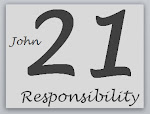I spent the last few days refinishing a couple pieces of
furniture. Thankfully, I had a friend around who had some experience; he taught
me a lot through the process. First, we stripped and re-stained a cedar trunk.
My idea was to paint it, but my friend agreed with my wife: you don’t paint
cedar. The wood is too nice to cover up! And whaddya know they were right. It’s
beautiful!
Now I’m painting a pine bookshelf. Pine is one of those
woods that often looks better when it’s covered up. So now it’s white.
This afternoon I started thinking about a parallel. Jesus
talks about white-washed tombs…
Matthew 23:27-28
New
International Version (NIV)
27 “Woe to you, teachers of the law and Pharisees, you hypocrites! You
are like whitewashed tombs, which look beautiful on the outside but on the
inside are full of the bones of the dead and everything unclean. 28 In the same
way, on the outside you appear to people as righteous but on the inside you are
full of hypocrisy and wickedness.
A white-washed tomb is a lot like my pine bookshelf. You can
put a little paint on the surface, and you don’t notice the blemishes. In fact,
a painted pine bookshelf wouldn’t look any different than a painted cedar
trunk. But when you strip away the paint, what’s underneath the two provides a
sharp contrast. The cedar is so beautiful on the “inside” that you put stain on
it, which soaks deep into the wood, and rather than hiding what’s under the surface, it draws it out. And the finished product boasts about its grain.
We all know how to put on a nice finish coat of white paint.
We know how to make it look like we have it all together. But what would happen
if you stripped away the cover-up? What would be revealed? Are you just a
white-washed tomb, or are the grains of your character worth exposing… even
highlighting?








